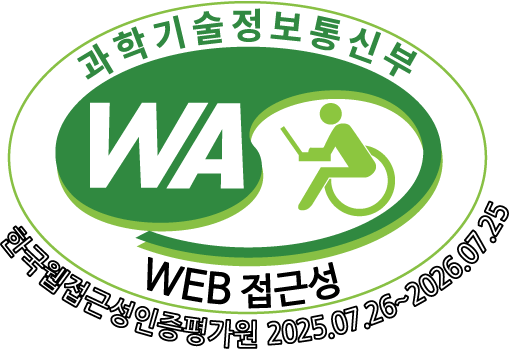1,2차관
제네바군축회의(CD) 본회의 조중표 제1차관 연설문
- 부서명
- 작성자
- 관리자
- 작성일
- 2007-03-14
- 조회수
- 5058
Statement
by H.E.MR. Cho Jung-pyo
Vice Minister of Foreign Affairs and Trade Republic of korea
at the Conference on Disarmament
Geneva 14 March 2007
Mr. Secretary-General, Distinguished Delegates,
Mr. President,
Despite such failures, in Geneva last year we witnessed meaningful progress at both the Third Review Conference of the CCW and the Sixth Review Conference of the BWC. The continuation of the structured and focused debates that were started last year in the CD is likewise encouraging. We should exert our full efforts to sustain this momentum. I am eager to see the CD put back to work to carry out its unique mission.
As the new NPT review cycle is starting this year, we are paying close attention to the process with cautious expectation. I hope and expect that the NPT PrepCom will make a fresh start, and our activities in the CD provide new impetus for the coming NPT PrepCom in Vienna and the entire review process.
On nuclear disarmament, the structured debates have revealed that transparency, irreversibility, and verifiability should be the guiding principles of nuclear disarmament. While pursuing a pragmatic, realistic and step-by-step approach, we need to discuss a range of issues such as nuclear doctrine and policy, operational status, reduction and verification. My Government supports the concept of negative security assurances as a practical means of reducing the sense of insecurity of non-nuclear weapon states. I believe that nuclear weapons states should provide credible security assurances to non-nuclear weapon states that faithfully meet their NPT and safeguards obligations.
The Republic of Korea, as one of the countries which is actively pursuing a peaceful space program, views space security, including the prevention of an arms race in outer space (PAROS) and the intentional targeting of space objects, as an important issue of great relevance for the CD. We are hopeful that intensive consultations under this agenda item, at both the formal and informal meetings, will contribute to a deeper understanding and a further elaboration of the various aspects of the issue.
While we need to consider all of the issues of concern to the Members, it is imperative that we seize upon those items that have matured to the point where substantive work will soon be possible. In a spirit of cooperation, we should all summon our political will and exercise flexibility to enable the CD to do its work.
<![endif]>
The Six-Party Talks have now moved from the phase of “word for word” to the phase of “action for action.” The current agreement has a number of merits. First, its multilateral character lends greater formality and binding power. Second, by translating Pyongyang's pledge of nuclear abandonment into substantive action, the February 13 agreement lays the foundation for halting additional production of nuclear materials by the DPRK. And third, by incorporating a performance-based approach and a timetable for implementation, the denuclearization process of the DPRK can be expedited.
What we now need is a comprehensive and multi-layered process that encompasses politics, security and economics to induce the DPRK to abandon its nuclear weapons and programs. Towards this end, we plan to manage inter-Korean relations strategically so as to allow for the efforts aimed at the resolution of the North Korean nuclear issue to reinforce inter-Korean dialogue and cooperation, and vice versa.
Mr. President,
Allow me to elaborate on the desirable outcome to be expected from the success of the Six-Party Talks. Firstly, we can prevent nuclear proliferation in Northeast Asia and thereby enhance peace and security in the region. Secondly, the talks will have a direct positive effect on the establishment of a peace regime on the Korean Peninsula and could evolve into a new form of multilateral security cooperation in Northeast Asia. And thirdly, we believe that the approach of cooperation and dialogue used in the Talks can “proliferate” to other regions and reinforce the global non-proliferation regime which is currently facing serious challenges.
Ultimately, when the Six-Party Talks achieve denuclearization and succeed in developing a solid cooperative framework, the mechanism of the Six-Party Talks will serve as a good basis for a future multilateral security regime in Northeast Asia. Furthermore, the experience of having resolved the greatest security issue in Northeast Asia through cooperation and coordination will prove to be a major asset in responding to new security challenges.
Mr. President,
Some might describe the past ten years of the CD as the “Ten Lost Years,” the years of fruitless debates and stalemate. I do not agree. The learning process may be long, but time is never lost as long as we are committed to our common goal of achieving peace and security through disarmament. The sincere efforts to negotiate, based on mutual trust, will always pay off in the long term. It is useful to recall the UN Secretary-General Ban Ki-moon’s message to this Conference that “this Conference possesses both the breadth of expertise and the depth of knowledge to address disarmament concerns.”
Finally, I would like to cite the words of wisdom that “Peace will not come out of a clash of arms, but out of justice lived and done by unarmed nations in the face of odds.” The political will to live and do the justice starts here and now, in this very chamber and from within our hearts.
Thank you for your attention.
